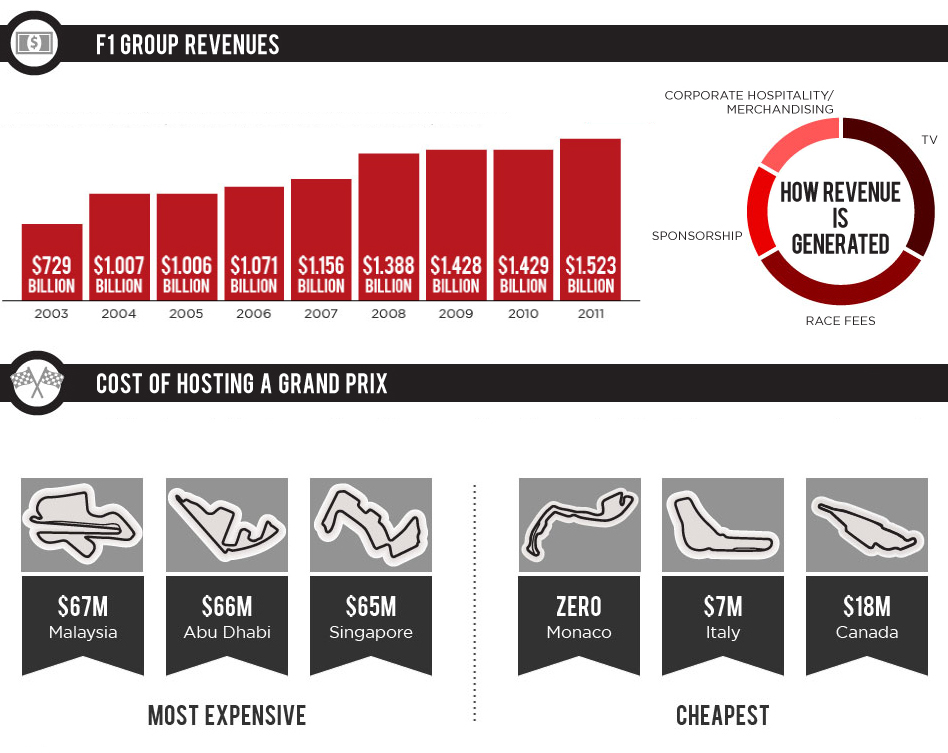Christian Sylt is the co-author of "Formula Money," an annual report examining all aspects of F1's finances, with "detailed data on teams, drivers, sponsors and races," according to Knight & Torre of CNN. Here, he "answers key questions about F1's financial model."
Q: How well is F1 doing financially?
Christian Sylt: F1 is incredible really. I've never seen a company like F1 in terms of revenue-generating potential. Over the past five years we've had one/two recessions and its revenues and profits have gone up. The revenues last year were $1.6 billion, 2011 was definitely $1.5 billion.
Q: What's the secret of its economic success?
Sylt: The key driver of the growth is the fees that come from the circuits ($500 million). Most of these contracts include clauses that increase the rate by up to 10% annually. It's a clever strategy because if you look at the secrets to F1's success you can identify several key points. The move to Asia is one.
Q: Do different races pay different fees?
Sylt: Bigtime. For example, Monza (Italian Grand Prix) you are talking single digits whereas Singapore you are talking in the region of $60 million. Malaysia pays $66.9 million a year. The average fee for hosting is now $27 million and that's driven by these new Asian races.
Q: How much of F1 profits go to the teams?
Sylt: Essentially, 47.5% of the profits are split between all of the teams. That is what is known as the prize fund. In 2011, profits came to $1.1, 1.2 billion so 47.5% of that amounts to around $400-500 million and that is shared between the top ten. It's not shared evenly, it's based on performance. In addition to that, certain teams get additional money, with Ferrari being the key beneficiary with, as far as I know, 5% of profits all to itself.
Q: How is sponsorship evolving?
Sylt: What's increasingly happening is that sponsorship deals are being done with F1 owners. You have Rolex and Emirates in the last three/four months alone doing gigantic deals to sponsor F1. What you get as a F1 sponsor is numerous things. You get packages of trackside advertising around the circuit. Those are probably some of the best value sponsorships in the whole of sport. What sponsoring F1 offers over sponsoring a team is guaranteed exposure (CNN, 7/30).
 |
| Source: Formula Money |




